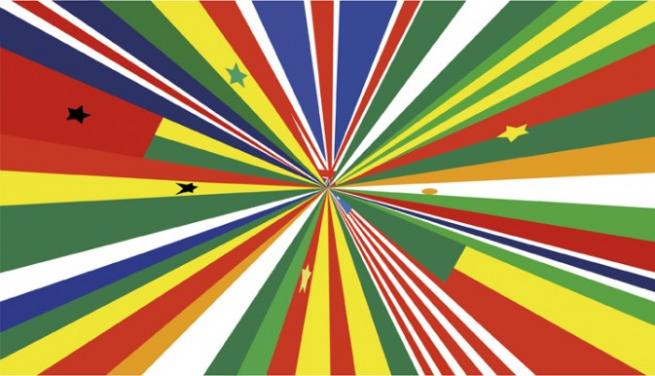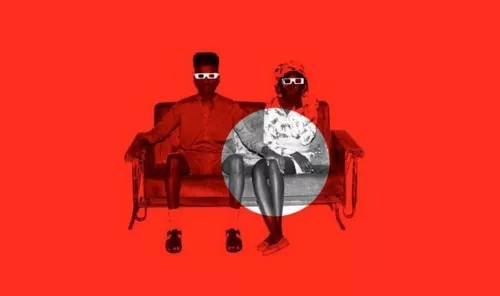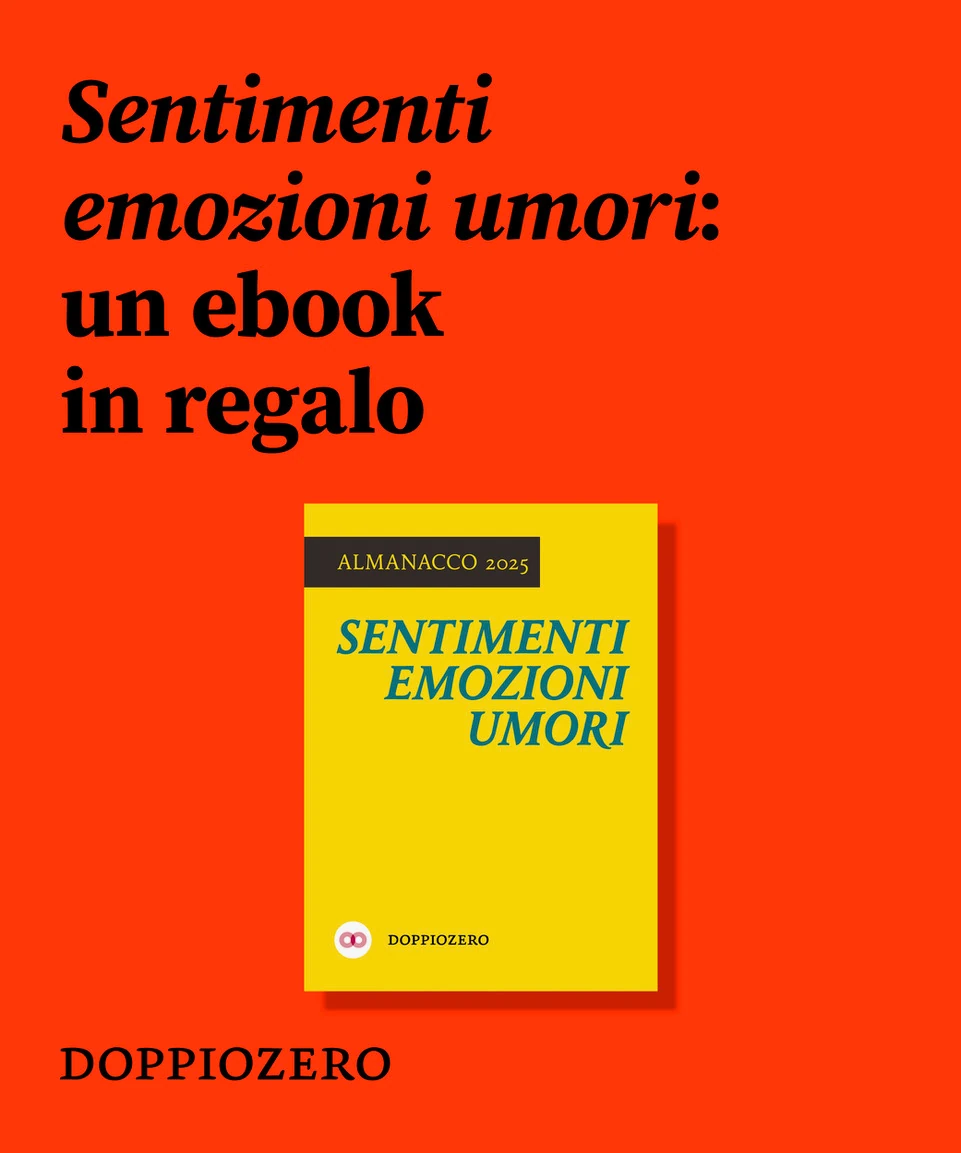Speciale
Why Africa?
lettera27 is a non profit foundation born in 2006. As the name suggests it supports literacy and the right to education. Its priviledged territory is the African continent. The twenty seventh letter is the missing one, the one that doesn't exist and is stil to be written. We are happy to participate in this project that brings together the analogic and digital culture. It's in the Dna of doppiozero. With this piece we begin the strict collaboration between our Association and lettera27.
Marco Belpoliti, Stefano Chiodi
doppiozero Editors-in-chief
Why Africa? For many years lettera27 has been dedicated to exploring various issues and debates around the African continent and with this new editorial column we would like to open a dialogue with cultural protagonists who deal with Africa. This will be the place to express opinions, tell their stories, stimulate the critical debate and suggest ideas to subvert multiple stereotypes surrounding this immense continent.
With this new column we would like to open new perspectives: geographical, cultural, sociological. We would like the column to be a stimulus to learn, re-think, be inspired and share knowledge. For the opening piece we asked our partners, intellectuals and like-minded cultural protagonists from all over the world to answer one key question, which also happens to be the name of the column: "Why Africa?". We left the question deliberately open, inviting each of the contributors to give us their perspective on this topic from their own context. This first piece is a collection of some of the answers we received, which aims to open the conversation, pose more questions and hopefully find new answers.
Elena Korzhenevich,
lettera27

Why Africa?
Having returned to my homeland of Ethiopia, I get this question often on my decision to return to my place of birth. And my answer has been "Why not Africa?" Many of us who have grown up as immigrants abroad have always maintained our links to our birth place in one form or another. The expression “you can take a person out of the country but you can’t take the country out of the person” has been true to our generation of artists. Being back in Africa has been a life education, but also the most inspiring moment in my career. Africa is rich in culture, resources, history and people, and the only hindrance to our progress is based on the limits that we place on ourselves. Having been in Addis Ababa for the past 8 years, I have seen the growing changes of our cities and of our country. This is not to say that everything is wonderful, but the possibilities for change are limitless. When you look at the various industries as well as the contemporary art scene there is a new form of self-expression that is brewing, which has all of a sudden attracted a new audience in the international community. Hence, the question should not be "Why Africa?", but instead it should be "What is Africa's future?" As my grandmother says: "The gold we hold in our hands should not be disregarded as copper." Africa is the past, the present and the future of the world.
Aida Muluneh
Aida Muluneh is an award-winning photographer based in Addis Ababa, Ethiopia. She is a founder/director of Addis Foto Fest and Desta for Africa, a creative production company, which provides creative consulting, photography services and cultural event planning for the local and international market.
www.dfaplc.com www.addisfotofest.com
Why Africa?
Why Africa in relation to what?
Ntone Edjabe is a writer, journalist, DJ, basketball coach and founding editor of Chimurenga magazine. Chimurenga is a publication of arts, culture and politics from and about Africa and its diasporas. www.chimurenga.co.za
Why Africa?
Africa is at the dawn of a new era. The continent is cultivating some of the fastest growing economies in the world. International tourism increased notably in 2013, which as a result has contributed to government revenue, the private sector and employment. In diversifying trading partners with other emerging markets such as Brazil and China – robust growth has been evidenced in several African countries. As the region’s countries further develop, so will activity and productivity in terms of investment, business, the arts, education, science and technology.
There is no denying the diversity between countries, each with its own economy and socio-political infrastructure and yet – to directly focus on arts and culture – we are encountering new art centres, venues and projects being initiated across the continent. Demonstrated also, is a more substantial casting of focus on artists living or working in Africa and its diaspora in the frame of contemporary art, with an increased presence in biennales, major exhibitions and museum collections. With 1:54, we are working to bridge the disparity between insightful and intelligent art production and a broader international audience.
Born and raised in Morocco, Touria El Glaoui has spent over five years working between London, various African countries and the Middle East in a business development capacity and is a member of the Executive Committee of The Friends of Leighton House, London and a trustee of the Marrakech Biennial. In October 2013, she founded 1:54 Contemporary African Art Fair in London.
1-54.com; twitter.com/154artfair; facebook.com/154ContemporaryAfricanArtFair
Why Africa?
Because Africa has an exponential rising, that art follows
Because Africa is where it’s going to happen in the future
Because after considering Europe and Northern countries as the only place to make it, Morocco turns to Africa for inspiration and development
Since 2009, the Diptyk magazine offers a unique perspective on the contemporary art scene in Morocco and in the Arab world. It has covered all the events of art agenda involving artists from the Arab world, as Venice, Dakar, Marrakech and Benin biennials.
Why Africa?
To represent or to narrate one’s own history is the most natural and primary right for any individual or any group including states. Unfortunately, most of African people, in the process of modern world history, were deprived of the right of representing their own histories in the way which modern Europe did. Why Africa? Let me try to answer this question as follows based on my special interest in contemporary African art from a Japanese eye: to witness how people of Africa recover their proper right to represent and to narrate their own histories not only in European way but in their proper ways.
Yukiya Kawaguchi is a Professor at Rikkyo University, Tokyo. He specialises in contemporary African Art and politics of display, having organized many exhibitions including "An Inside Story: African Art of Our Time"(1995), "A Fateful Journey: Africa in the Works of El Anatsui"(2010).

Meschac Gaba, Ensemble, 2012, Inkjet print on synthetic canvas
140 x 240cm. Courtesy Stevenson Gallery.
Why Africa?
Why Africa?
For the African in each of us
For the beginning that still matters
For the respect we pay to our mothers
Because of endless and beautiful rich lands
Because of old grains nourishing generations yet to be born
Because of healing waters washing new and old sores.
Why Africa?
For youth, for vibrancy
For a never ending and wise melody
For daring to make changes again
Because of eyes opening colors
Because of beauty that forces you to look again
Because of diversity that make you even shiver.
Why Africa?
For the free sun caressing us from head to toe
For the music recalling all souls back to heaven
For cultivating children addiction for freedom
Because of all that is left in her-story to be told
Because of lullabies eternally recreated for the new baby
Because of the rhythm that wake your desire.
Why Africa?
For the gifts we learn to pay forward
For the families with no blood to tie them down
For new life within every life
Because of the creation of new meanings
Because reparation needs to be bold
Because bombs and virus have wings now.
Why Africa ?
For slavery and the festering of old pain over looked and unhealed
For taming the shame and mending broken link of humanity
For colonial roots of destructions
Because of what can never be stolen
Because of rebirth that is bound to happen
Because there are hungers that cannot be fed.
Why Africa?
For the dawn of new days
For shared joy unbound
For Justice
For Justice
For Justice
and Peace
Born and raised in West Africa, Coumba Toure is a changemaker and an artist. She is the Ashoka Africa Empathy Initiative Leader and Co Founder of Sogoba Production.
kumbati.wordpress.com, ashoka.org, @kuumbati
Why Africa?
For better understanding it and for better understanding of our relationship with it. For giving voice to its pro-active and positive voices. For the spirit of intellectual adventure, as well. The impression is that Africa in all aspects, therefore, anthropologically, culturally and socio-politically, is a territory still in full fermentation, with new forms and figures being formed. I would purposefully avoid terms like “identity”, since I think that part of overcoming postcolonialism is forcing ourselves to redefine a term of that kind. I think about all the Africans in all parts of the world today and the work they are doing in the conditions that are not comparable to any other, since they don’t have a defined “retroland”. I think that Africa is forced to find new forms, since the existing ones do not correspond to it. I am afraid it’s the weakest continent of all and for that reason we should look at it with more care and participation. At the same time I believe that there has come a time where everyone decides for themselves, and therefore they won’t stand our interference and paternalism anymore, but would dictate the attitude towards them on their own terms, which means it has to be built from scratch. Hence, I believe that giving space to Africa we would be giving space to ourselves.
Elio Grazioli is an art critic and contemporary art history and photography professor. In his own way he does everything critics and contemporary art history professors do.
With the support of 







